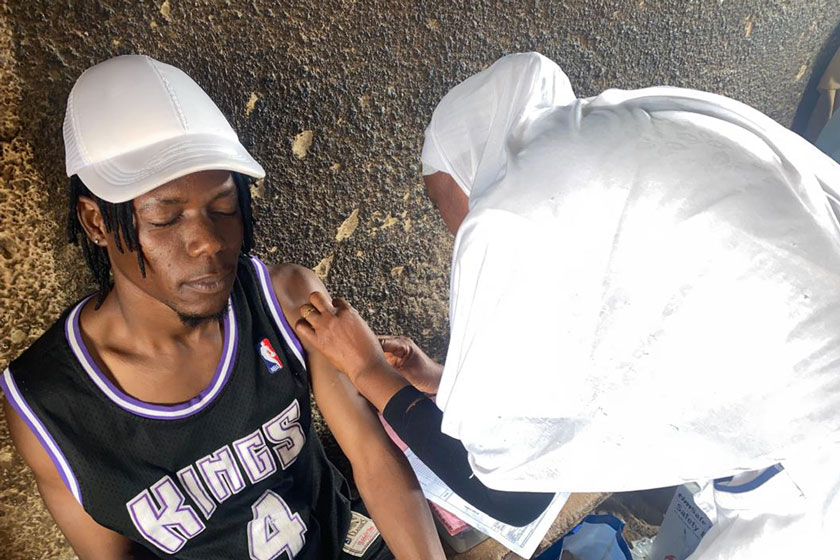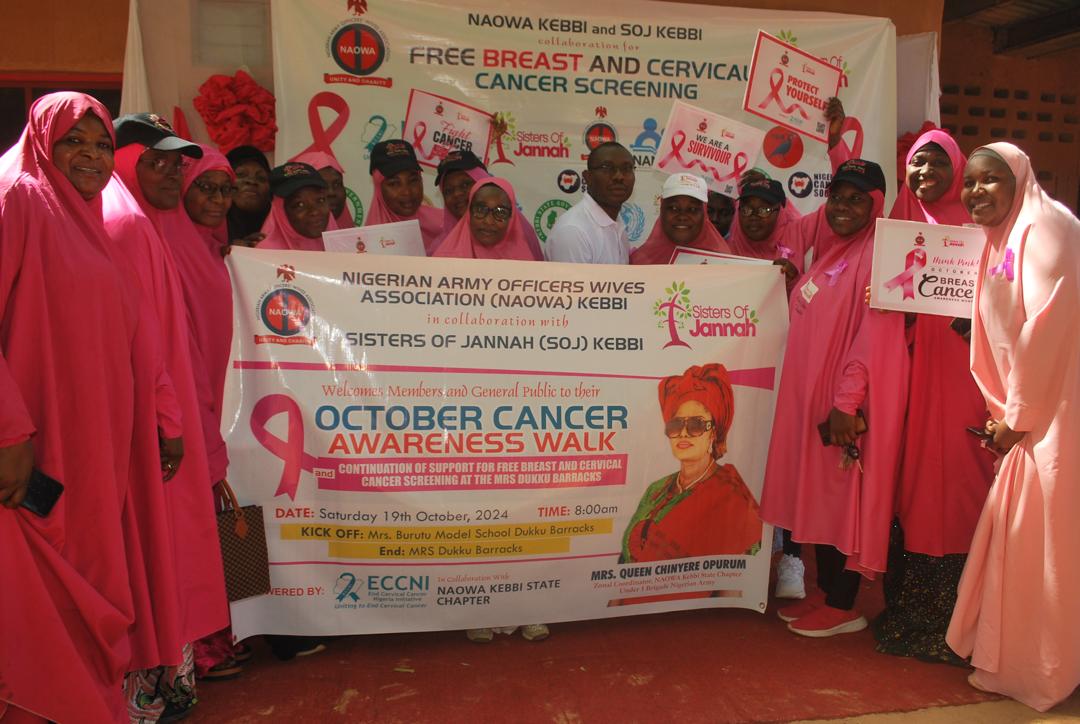In Nigeria’s Kebbi state, vaccines are curbing a deadly meningitis outbreak
Many hundreds have been hospitalised with the deadly condition since early March, but a Men5CV campaign is bending the epidemic curve into decline.
- 16 May 2025
- 6 min read
- by Eric Dumo
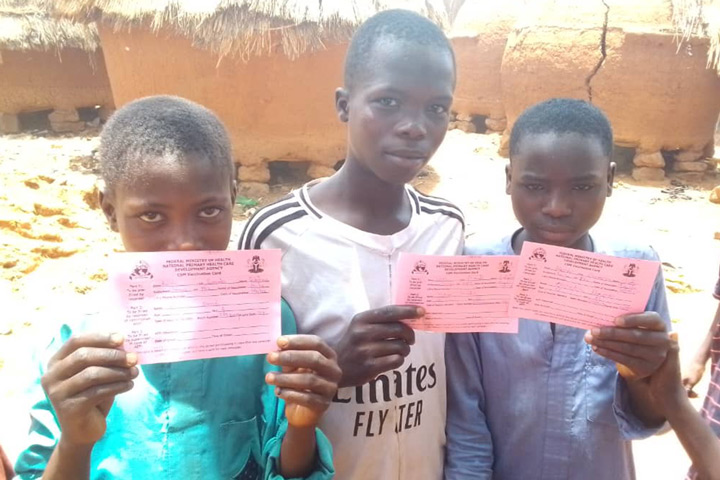
On 29 April, in the crowded emergency isolation ward at the General Hospital of Gwandu in Nigeria’s Kebbi state, four-year-old Ahmed Kaliru received a shot of the pentavalent meningococcal conjugate vaccine, Men5CV. Four frightening days had passed since he had first been admitted to the ward, a victim of a brutal meningitis outbreak sweeping Gwandu since early March. The injection signalled the hope of lasting relief for his family.
“It was his cry that woke us from sleep one night,” said Bashir Kaliru, Ahmed’s father. “We were confused and didn’t know what the problem was until we got to the hospital in the morning.
“A nurse took his blood sample and he was admitted. Two days later we were told that he had meningitis. We were afraid but the medical workers kept assuring us that he won’t die.
“He was treated and subsequently given vaccine for the disease. His condition has improved a lot,” Kaliru added.
Kebbi is one of the two worst-affected states in Nigeria this year, and towns like Gwandu have seen more than their fair share of anxiety and heartbreak in recent months. This isolation centre at the town’s General Hospital had, by late April, admitted more than 838 patients. Across Kebbi, more than 120 people have died of meningitis so far this year.
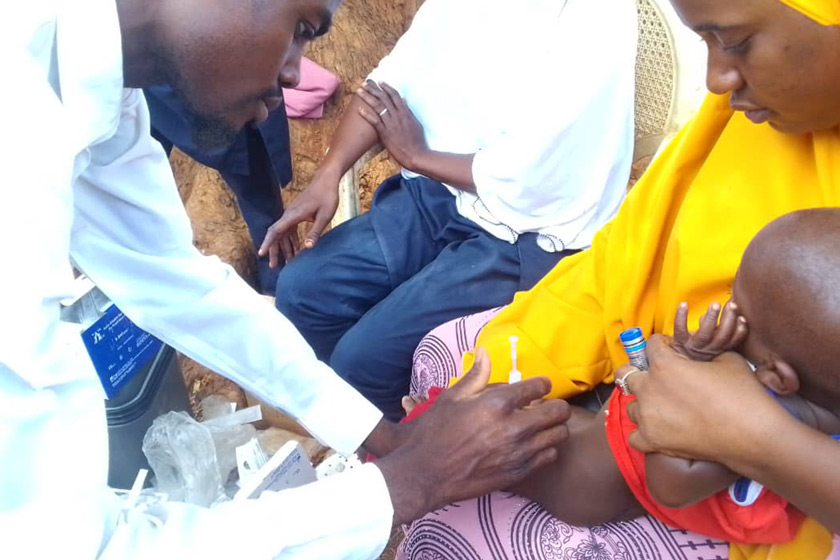
Deadly and disabling
Meningitis is a serious medical condition characterised by inflammation of the protective membranes covering the brain and spinal cord. It’s frequently deadly, and many survivors of the disease suffer permanent disabilities, including hearing and vision loss, limb amputation, speech, language, and memory distortions.
Africa’s so-called “meningitis belt,” a stretch of terrain that includes 26 countries spanning a bow from the west to the east of the continent, is particularly hard-hit. It used to be worse, however: since the MenAfriVac jab, which protects against Group A meningococcus bacteria, a common cause of meningitis, began to roll out in 2010, rates of the disease across the region have plummeted. In fact, Group A meningococcal disease has been all but eliminated.
But meningitis can be caused by other pathogens too, including by other strains of meningococcal bacteria. The Men5CV vaccine, introduced in Nigeria in April 2024, is more broadly protective than MenAfriVac, shielding immunised people against Groups A, C, Y, W and X meningococcal disease.
That means eight-year-old Aminat Bako, who, like Ahmed Kaliru, received the vaccine at Gwandu General Hospital as she recovered from the brain inflammation, can hope to avoid a second infection.
“We are happy and grateful for the swift intervention of the health authorities; otherwise, my daughter could have been among those who died from the disease in this town,” said Habiba, the child’s visibly elated mother.
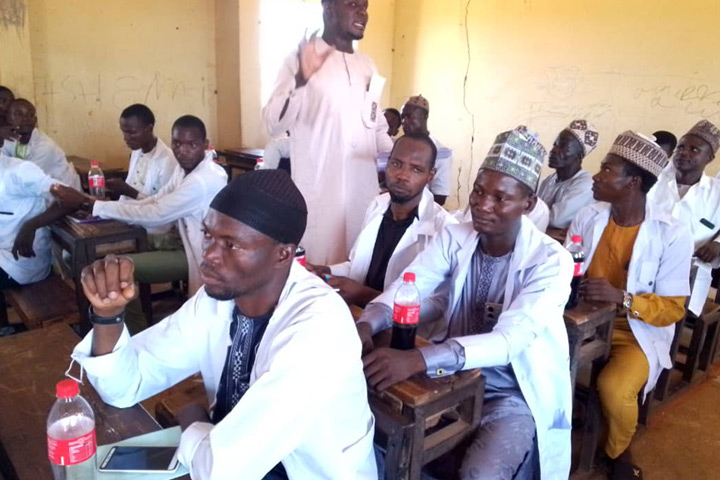
Containment measures
Like in Gwandu, health authorities are ramping up efforts to contain the disease in Aliero council area of Kebbi. In the earliest weeks of the outbreak, six students at a university in the community were among over a dozen casualties of the disease in this part of the state. That incident sent panic across the area, and triggered a series of containment measures by authorities to curb the spread of the scourge.
Management of the university have since partnered with state health authorities as well as officials from the World Health Organization, UNICEF and Médecins Sans Frontières (MSF) to improve prevention, including by deploying additional medical personnel to the school’s clinic to monitor and treat suspected cases of the disease. In addition, hygiene and sanitary conditions have been improved, while usage of hand sanitisers has become a regular fixture once again in the academic institution.
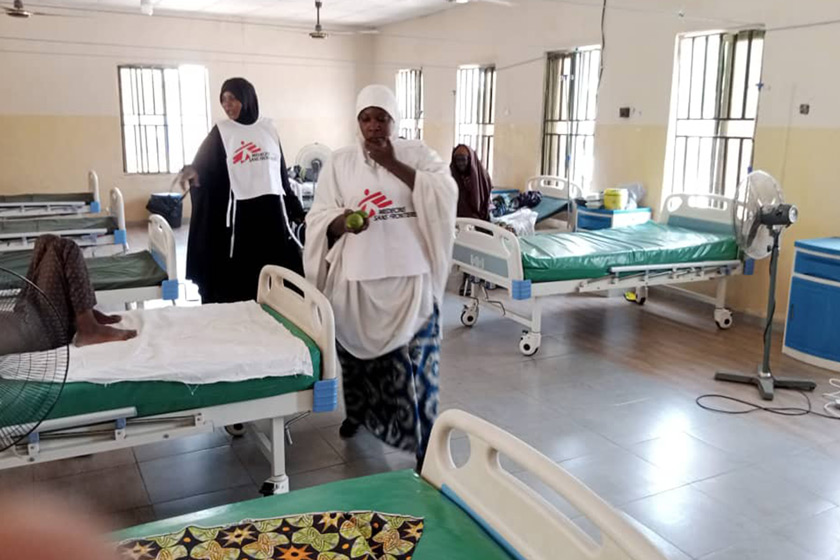
Vaccines roll out, case count declines
Meanwhile, state-wide, mass vaccination against meningitis began in early April. The campaign, led by the Kebbi State Government, followed the delivery of 1 million Men5CV doses from the Gavi-funded global stockpile, which is managed by the International Coordinating Group on Vaccine Provision.
Health authorities in the state, in collaboration with development partners, have worked tirelessly to ensure that individuals within the most vulnerable group receive the vaccine. To achieve this, at least 429 vaccination sites have been established in the three affected council areas. In addition, more medical workers have been recruited to help track suspected cases across the state in house-to-house surveillance that has proven pivotal in curbing the latest outbreak.
Have you read?
“We have treated 1,936 patients from the three most affected council areas in Kebbi, while 490,849 individuals have been vaccinated so far from the 500,000 we targeted in the state from the most vulnerable group,” said Dr Sham’un Abubakar, Mobile Emergency Coordinator for MSF in Gwandu.
“The number of cases has really gone down in recent days. Deploying local health workers who know the communities well helped us achieve a higher success rate faster. They went into the locality to talk to the people about the disease, spot suspected cases, and send them to the isolation centres.
“This strategy helped us stay on top of the outbreak and ensured treatment got to all those who needed it the most,” Dr Abubakar disclosed.
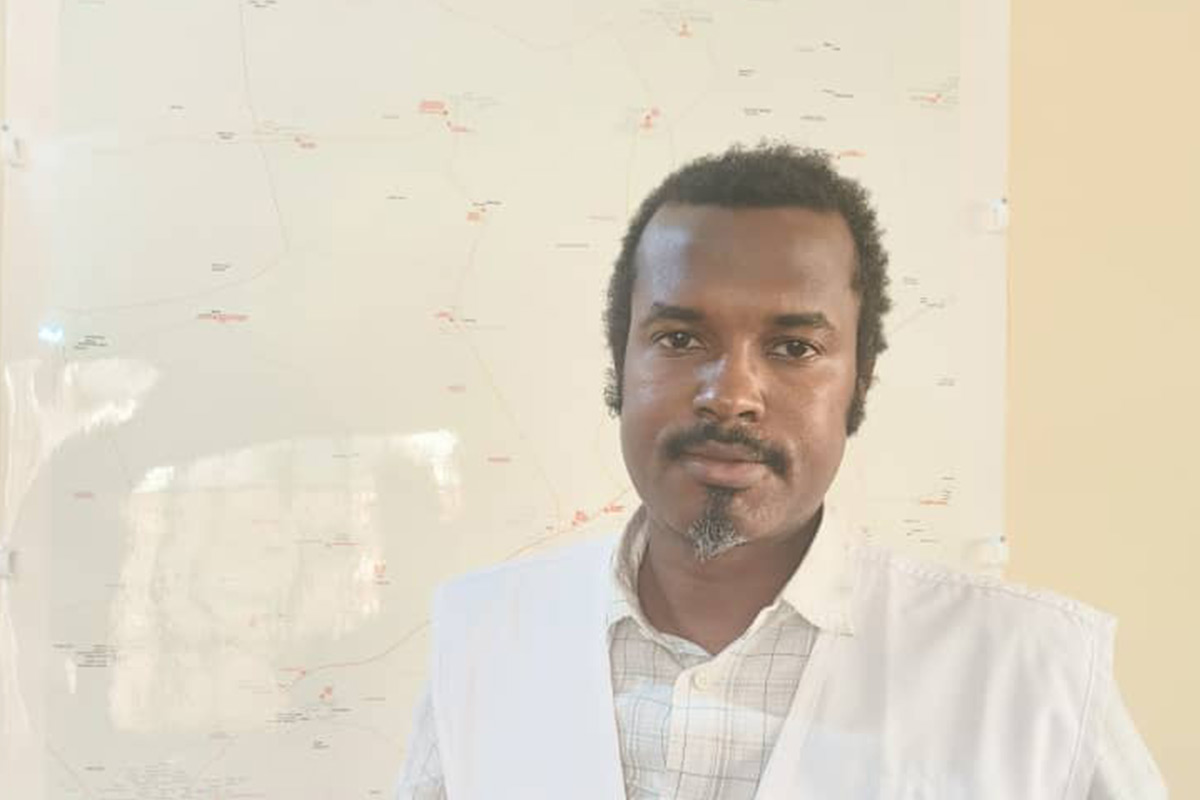
Teaching meningitis
The Kebbi State Government also embarked on a sensitisation campaign in the local media to educate residents on the disease, reinforcing the importance of keeping the environment clean, washing hands in clean water, and avoiding staying in congested rooms lacking proper ventilation.
“The mass advocacy that followed this outbreak really helped in bringing the outbreak under control in Kebbi,” said Anuoluwapo Abdullah, Cerebrospinal Meningitis Vaccination Campaign Consultant for the state.
“The advocacy using local health workers the people knew allowed them to trust the vaccine, making our work in tackling the outbreak less difficult.
“The turnout for vaccination was massive: it is something we had never witnessed before in an area with high hesitancy,” he added.
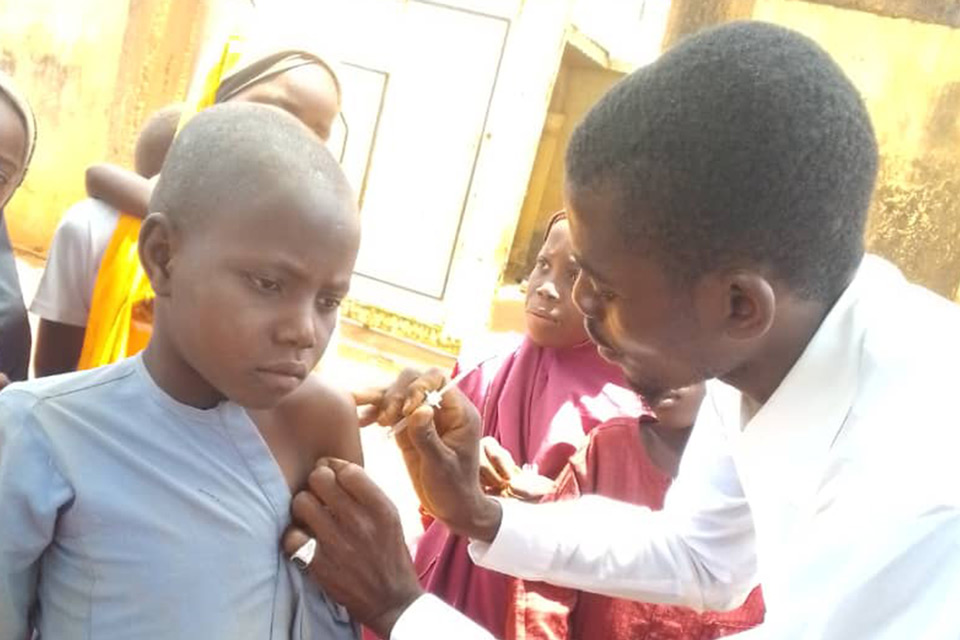
Attributing the decline in reported cases and deaths from the outbreak in Kebbi to the collaborative efforts of various groups, spokesperson for the Nigeria Centre for Disease Control, Sanni Datti, said that it would only be a matter of weeks before meningitis was successfully expelled from all affected states in the country.
“The sharp drop in the number of fatalities and spread of the disease in Kebbi is a testament to the great collaboration between local and foreign health groups.”
“Our team has continued to provide every needed support, including testing samples at our laboratory and ensuring results are dispatched on time for appropriate treatment of patients by the health workers in the field.
“This is commendable and will be sustained to ensure that the disease is finally expelled from the country,” he said.
Though the ongoing fight against the outbreak of meningitis in Kebbi is not yet over, the commitment of the state authorities and dedication of local and foreign health groups to continue to approach the battle using various tactics is giving vulnerable residents like Ahmed Kaliru and Aminat Bako a reason to smile again.

